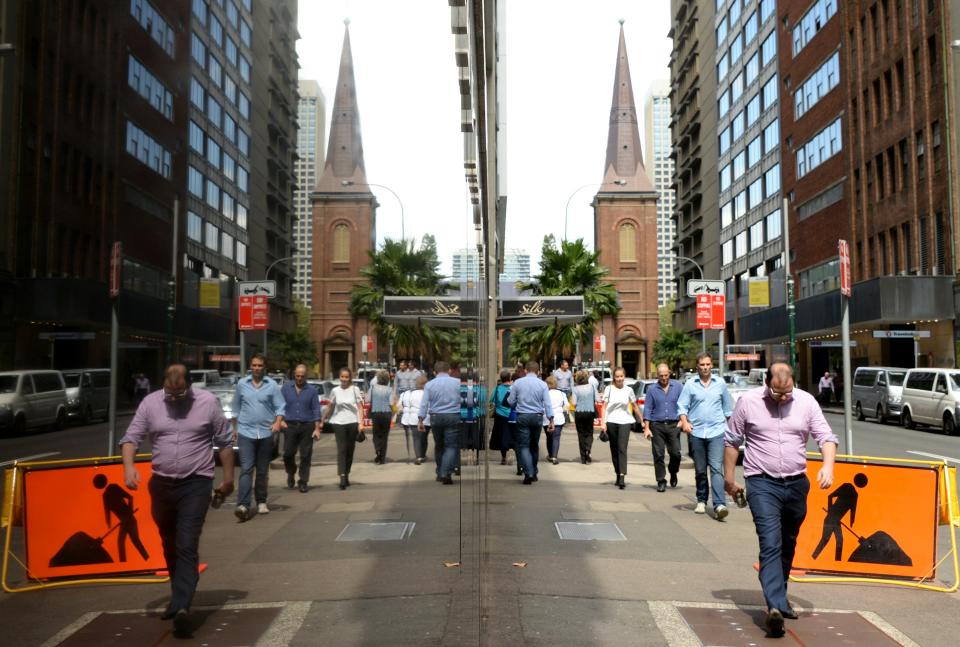'Trifecta of falling GDP': Fixing Australia’s deep recession

The collapse of the Australian economy is now there for all to see.
GDP fell an unprecedented 7 per cent in the June quarter 2020 after a fall of 0.3 per cent in the March quarter to confirm the deepest quarterly and six-monthly decline in GDP on record.
This dismal news is despite policy makers cutting interest rates to near zero, buying government bonds, providing a low interest rate debt facility to business, a record budget deficit and extra government spending which clearly have not been enough to stop the fall in employment and a rise in business failures.
What’s even more concerning is that given the partial economic indicators we have on board since the end of the June quarter, there is a distinct possibility that GDP will fall again in the September quarter.
This would see a trifecta of falling GDP.
More from The Kouk: How to save Aussies from ‘depressing’ hardship
More from The Kouk: The hidden factors driving house prices
More from The Kouk: Get ready for years and years of low interest rates
These catastrophic economic conditions have seen a record number of jobs lost, a surge in unemployment and underemployment and they feed into a record low growth rate in wages.
No wonder household spending is collapsing and consumer sentiment is in the doldrums.
Everyone is hoping for an economic recovery, but hope may not be enough to see the Australia economy grow fast enough and for long enough to see economy to return to full employment with strong growth in real wages.
Some of the governments stimulus measures on JobKeeper and JobSeeker have been extended beyond the end of September, but it must be emphasised that starting next month, there will be less government stimulus in the economy that at present.
This is a problem.
If high levels of JobKeeper and JobSeeker payments have cushioned the extent of the downturn as Treasurer Josh Frydenberg and RBA Governor Phillip Lowe suggest, why not set fiscal policy to keep government support at a level that will foster the recovery?
Now is not the time for the government to be penny pinching.
This week also saw the RBA announce its monetary policy decision and it is fair to say that, unfortunately, it feels its work is done when it comes to measures to support the economy.
While the RBA extended the Term Facility, which provides a pool of funds for the business sector to tap when they are in financial difficulties, there was no change in the cash rate or the bond buying program moves that could help support borrowers in these difficult times.
Indeed, the RBA did not mention any consideration of further interest rate stimulus despite a range of other central banks around the world embracing interest rates lower than in Australia and having more wide-ranging bond buying programs.
This monetary policy approach has fuelled a surge in the Australian dollar to levels around US73 and 74 US cents, well up from the lows of earlier this year.
A strong Aussie dollar is actually a constraint on the economy as it undermines the international export competitiveness of local business and those firms that compete with ever-cheaper imports.
If the dollar keeps rising, the potency of the economic recovery will be compromised. The RBA should act to make the Aussie dollar helpful in supporting growth.
It’s all about the budget
The government can act to support the economy with more cash being injected into the economy.
The Federal budget on 6 October is the next opportunity for the government to articulate how it will set policies to repair the economic damage that looks like getting worse before it gets better.
If, as Mr Frydenberg claims, the government money spent so far has cushioned the depths of the current downturn, more money would have a greater positive influence.
Over to you Mr Frydenberg to do more to get the Australian economy out of this mire.
Make your money work with Yahoo Finance’s daily newsletter. Sign up here and stay on top of the latest money, economy, property and work news.
Follow Yahoo Finance Australia on Facebook, Twitter, Instagram and LinkedIn.

 Yahoo Finance
Yahoo Finance 
